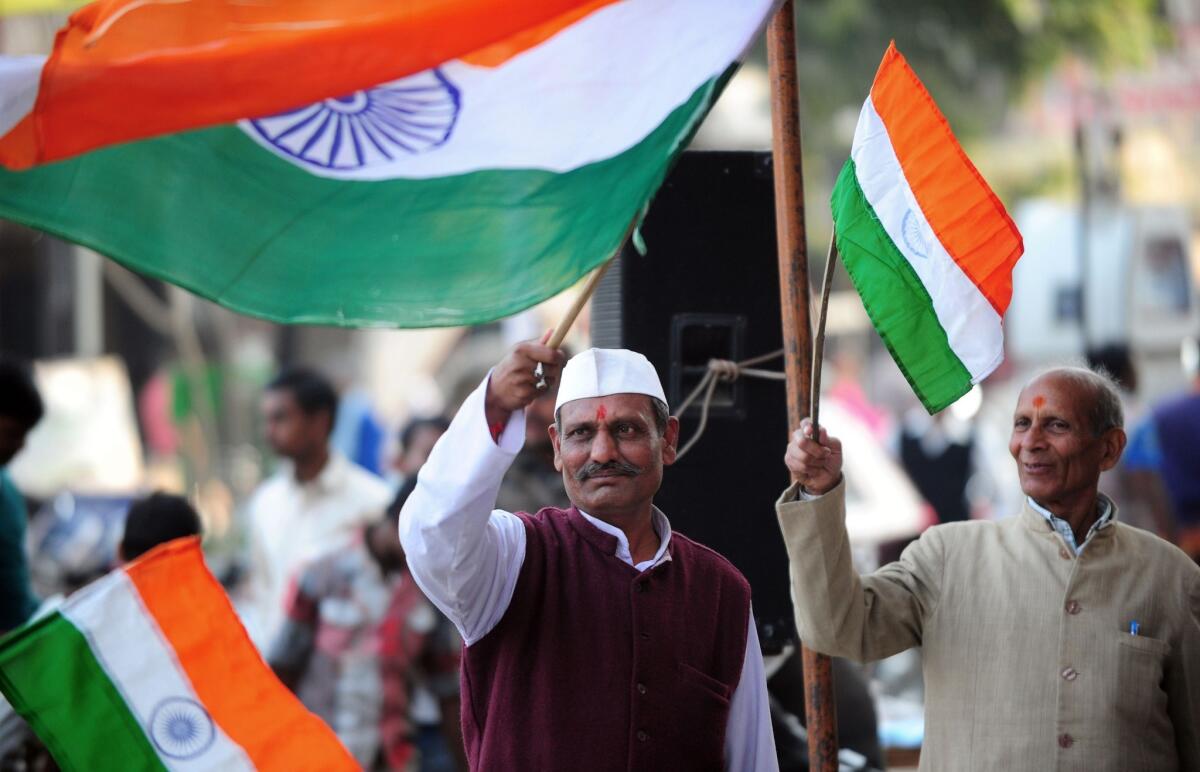Indian lawmakers pass anti-corruption measure on ninth try

- Share via
NEW DELHI -- After eight attempts over five decades, the lower house of the Indian Parliament passed an anti-corruption bill Wednesday, paving the way for an independent ombudsman with the authority to prosecute bureaucrats and politicians.
The vote follows the bill’s passage in the upper house on Tuesday. The measure, which enjoyed rare support from both the government and the opposition, now goes to the president for his signature, considered a formality.
India has suffered a rash of scandals in the telecommunications, coal, real estate, sports management and defense industries under the Congress Party-led government, allegedly involving billions of dollars.
India ranked 94th of 177 nations in 2013 in global watchdog Transparency International’s survey of corrupt nations, the same ranking as in 2012. In the survey, the lower the ranking, the less corrupt a country is perceived to be.
First proposed in 1966, the idea of an ombudsman, or lokpal, has often faced resistance from politicians and powerful civil servants wary of too much scrutiny over how regulations are implemented and “tea money,” or bribes to facilitate transactions, is spread around.
In 2011, however, an activist named Anna Hazare went on a 12-day hunger strike that sparked huge anti-corruption protests across India, tapping into broad-based public resentment and causing the political establishment to sit up and take notice. Hazare, 76, on Wednesday ended another nine-day fast with some coconut water after receiving assurance the bill had passed.
“This has been for the country,” Hazare told a rally of delighted supporters, many waving green, white and orange Indian flags. “It has been a lot of work by a lot of people.”
Arguably more disconcerting to politicians is the success of Arvind Kejriwal, a civil servant-turned-corruption fighter and onetime Hazare associate -- they’ve since fallen out -- whose Aam Aadmi Party trounced the ruling Congress Party in Delhi elections this month.
Aam Aadmi, or “common man,” has made anti-corruption a central electoral plank and is threatening to contest seats across the country in the next general election, expected in May. That has left the government and opposition parties running scared, analysts said, and keen to burnish their newfound commitment to fighting corruption.
The new legislation mandates the creation of a national ombudsman’s committee made up of no more than eight people. It also requires each of India’s 28 states and seven territories to set up its own version within a year.
Some expressed concern that oversight could be weakened at the state level, where local government has latitude to design the committee as it sees fit.
“We’re not sure about how strong or weak these would be,” said Amrita Johri, an activist with the New Delhi-based National Campaign for Peoples’ Right to Information, a civic group. “It would have been better if the states came also under the same lokpal.”
In addition to its license to investigate politicians and civil servants, the oversight bodies will be able to probe trusts that collect public money, although there are some exemptions for those performing religious or charitable work.
Analysts said the measure is a good start.
“I would have been happier if other bills like the whistleblower bill and judicial accountability bill were also taken into consideration,” said Shantaram Naik, a lawmaker involved in drafting the measure. “But I support the bill. It is strong and stringent.”
Naik said bureaucrats who in the past have turned a blind eye to questionable practices will now think twice.
“Officials will become wary of signing any file, even if the corruption would be trickling down from higher authorities,” he added, “since it will also get them in trouble.”
Twitter: @MarkMagnier
Tanvi Sharma in the Times’ New Delhi bureau contributed to this report.
More to Read
Sign up for Essential California
The most important California stories and recommendations in your inbox every morning.
You may occasionally receive promotional content from the Los Angeles Times.








